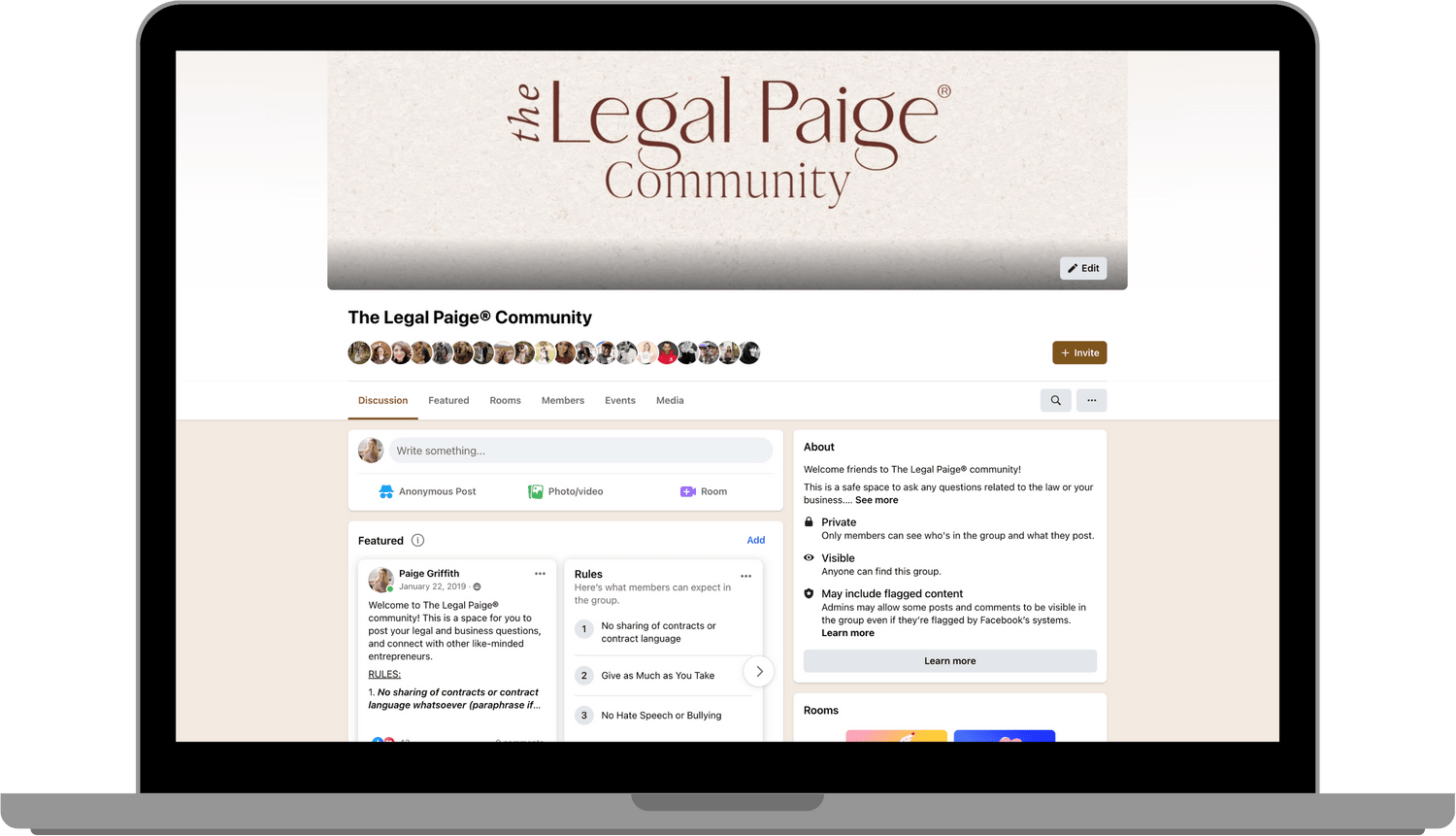
Episode 136: ANOTHER Public Health Crisis? Here’s Why Force Majeure Doesn’t Apply…
LISTEN ON
APPLE PODCAST • GOOGLE PODCAST • SPOTIFY
Imagine this: A wedding photographer booked a couple earlier this year. As the countdown grew closer to the big day, the monkeypox outbreak spread across the country, public health emergencies were declared, and the client spirals into a downright panic. The photographer opens up their email to find their client trying to get out of their contract due to the “national emergency”.
Despite the photographers’ best customer service skills, the couple keeps persisting and states that the situation is Force Majeure- they can’t continue the event as planned and need to cancel ASAP. What should the photographer do? Do they have to cancel the event, refund the client, and take a huge loss? What legal leg do the clients actually have to stand on and ultimately…when IS a national public health emergency a valid cause for cancellation?
Recently, The Legal Paige Facebook Community has been getting TONS of questions regarding cancellations, public health emergencies, and monkeypox (cue horrific flashbacks to 2020). As an attorney, I can assure you that not every situation is a Force Majeure event (even if your client tries to say it is). This podcast episode will shed light on how to navigate public health emergencies, what constitutes a real Force Majeure event, and the tools you need to have in your legal toolkit to navigate situations like monkeypox moving forward (Covid-19 PTSD not included).
Public Health Emergencies + Monkeypox
A Public Health Emergency is declared by the Secretary of Health and Human Services when they have determined a disease that may be of public concern. Most Public Health Emergencies have an expiration of 90 days but can be extended if the Secretary feels appropriate. When a Public Health Emergency is declared it opens up more funding for vaccinations, a quicker response time, and additional resources (i.e. it fast tracks the issue).
On August 4th, U.S. Department of Health and Human Services Secretary Xavier Becerra declared Monkeypox a Public Health Emergency. Monkeypox is defined by the CDC as “a rare disease caused by infection with the monkeypox virus. Monkeypox virus is part of the same family of viruses as variola virus, the virus that causes smallpox. Monkeypox symptoms are similar to smallpox symptoms, but milder, and monkeypox is rarely fatal.”
If Monkeypox is a rare disease and is rarely fatal you are probably wondering why the White House decided to declare it a Public Health Emergency. In the last few weeks the US has seen a significant uptick in cases that has caused some concern. At the time of recording, there were 7,510 cases in the United States with numbers on the rise. There is a vaccination for Monkeypox called JYNNEOS, but there is a limited supply which is causing a shortage in hospitals and pharmacies. By declaring Monkeypox a Public Health Emergency the Biden Administration put the disease in the #1 line for funding and it prioritized the production of the JYNNEOS vaccine.
What Actually Qualifies as a Force Majeure Event?
During the beginning stages of the Covid-10 pandemic, many clients were able to cancel their contracts for their events by enacting the Force Majeure Clause. They were able to do this because it was unforeseeable, unpredictable, and the contractual obligations were impossible to perform (those three things have to be true to be able to enact Force Majeure).
With clients beginning to invoke Force Majeure again for the latest public health crisis, it’s important to note that Monkeypox does not qualify as a Force Majeure event. In fact, MOST Public Health Emergencies don’t. Force Majeure was created for out of the blue, “acts of god” like tornadoes, hurricanes, wildfires, terrorism, war– events that no one could have imagined or anticipated.
The beginning of Covid-19 qualified as Force Majeure because the world was unpredictably shut down. Nobody could leave their house. There was an inability for contracts to be executed. Even if your clients wanted to continue with their wedding in say April of 2020, they literally could not due to the shutdowns across the United States.
That ‘impossibility of performance’ we saw with Covid-19 is what you need to keep in mind when new public health emergencies pop up. Is it impossible for you to perform your contractual obligations because of the emergency? If so, you could probably enforce Force Majeure. If you CAN perform your obligations then you are just in general cancellation territory.
More From This Episode
Press play on Episode 136 to learn more about Force Majeure events, how to navigate public health emergencies with clients, the protection clauses you absolutely need to have in your contract, and more!
If you haven’t stocked your legal toolkit with a solid cancellation agreement, now is a great time to set yourself up for success. The Legal Paige team and I are always watching things unfold in the news, so if monkeypox or any other public health emergencies take a wild turn for the worse…we will be updating you and helping you handle any sticky situations.
Finally, remember our FREE Facebook Community is a great, go-to resource for industry professionals.

Join the Community
Be a part of 8000+ TLP Community Members in this safe space and get real-time answers from Paige and her legal team daily!
